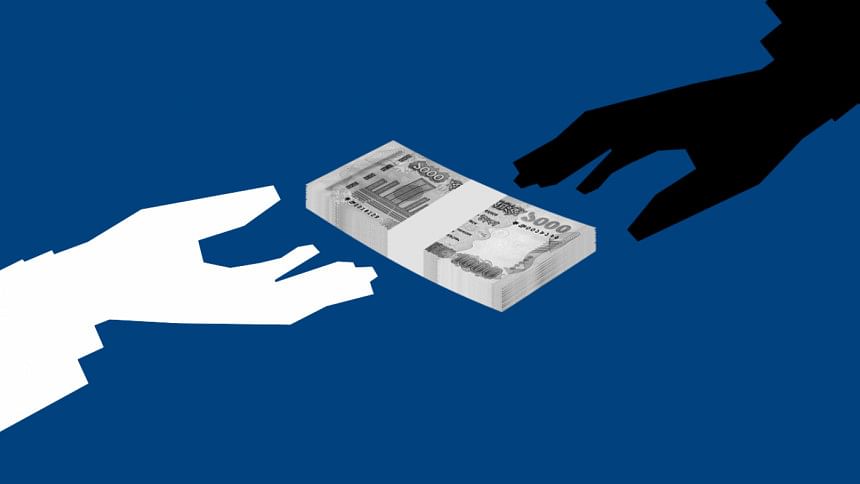Scope to clean black money stays

The parliament yesterday passed the next fiscal year's tax measures that met critics and advocates of the provision to whiten black money in the middle.
In the incoming fiscal year, black money holders can legalise their undisclosed wealth by paying 25 percent tax and a further 5 percent penalty on the tax amount furnished.
At present, amnesty to black money can be obtained by paying a 10 percent tax.
However, if the undisclosed income is to be legalised by establishing new factories, the tax would be 10 per cent.
As in this fiscal year, the wealth can be legalised without any questions asked on their source by the tax officials.
However, tax officials could ask questions about the source of funds for investing in properties this fiscal year. But from July 1, that authority has also been taken away from the tax administrators.
As in this fiscal year, black money can be cleaned by investing in land, buildings or apartments by paying a specific amount of tax per square metre depending on the location. The specific tax rate remains unchanged.
The fresh bid to help legalise black money without question comes amid lobbying from various quarters after the provision went missing in Finance Minister AHM Mustafa Kamal's proposed budget for fiscal 2021-22 on June 3 following criticism from economists and civil society.
"The way the provision was slipped in the Finance Bill, it can be said that the whole process was undemocratic," said Ahsan H Mansur, executive director of the Policy Research Institute of Bangladesh.
The government should have proposed the measure in the finance bill when the budget was first placed before the parliament.
"Lawmakers would have gotten the scope to discuss it in the parliament. Civil society could give opinions. And that is the goal of the constitution," said Mansur, also a former economist of the International Monetary Fund.
Despite the tax rate hike to 25 per cent, it can be said that the black money holders got a favour from the government.
"Even after this, no parity comes," he said.
There will be price speculation of properties because of the scope to invest the black money.
"By doing this, the government gives in to the pressure of landowners and developers," he said, adding that black money holders are unlikely to go for long term investment like the establishment of factories.
A 25 percent tax rate plus a 5 percent penalty on investment of undisclosed money does not penalise the tax dodgers enough, said Zahid Hussain, a former lead economist of the World Bank's Dhaka office.
"The tax burden on honest taxpayers in the same tax category is still likely to be higher than the burden on tax dodgers who choose to invest the undisclosed money in securities."
Referring to the scope of investing undisclosed income to set up industry on 10 per cent tax, he said there is no definition of what constitutes industrial undertaking.
"It is not clear whether this is left at the discretion of the tax authority. If so, it leaves open a large window for abuse."
It seems the policy has attempted to accommodate pressures from the beneficiaries of undisclosed money whitening facility while at the same time making them appear friendly to tax justice.
"The intention is laudable but as a practical matter it may be akin to trying to have your cake and eat it too," Hussain added.
Corruption is being patronised with such scope, said Muinul Islam, a former professor of the Chittagong University's economics department.
"It cannot be supported. If we patronise corruption instead of resisting, it will eat up the whole economy and eventually the whole politics will be taken over by the corrupts," he added.
Iftekharuzzaman, executive director of Transparency International Bangladesh, echoed the same as Islam.
"With this, corruption is being encouraged. This is discriminatory and unconstitutional. The entire black money was supposed to be seized along with a fine. Instead of doing this, this is being patronised."

 For all latest news, follow The Daily Star's Google News channel.
For all latest news, follow The Daily Star's Google News channel. 



Comments